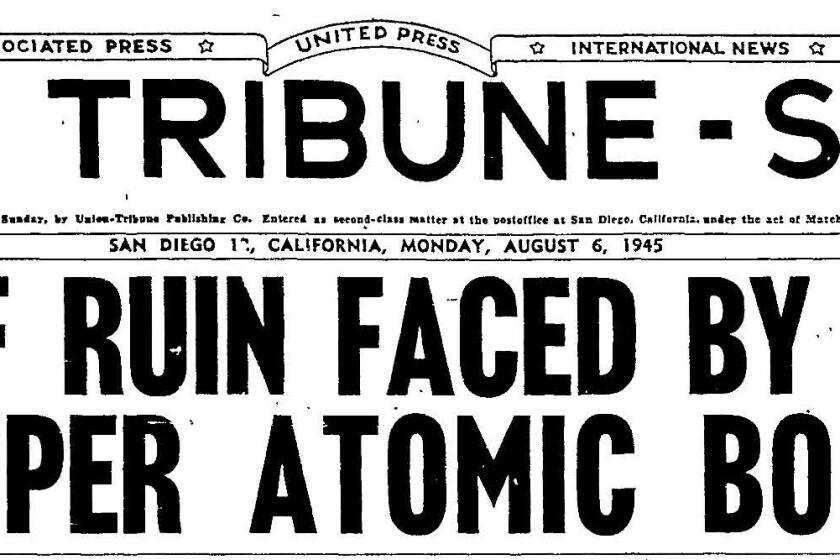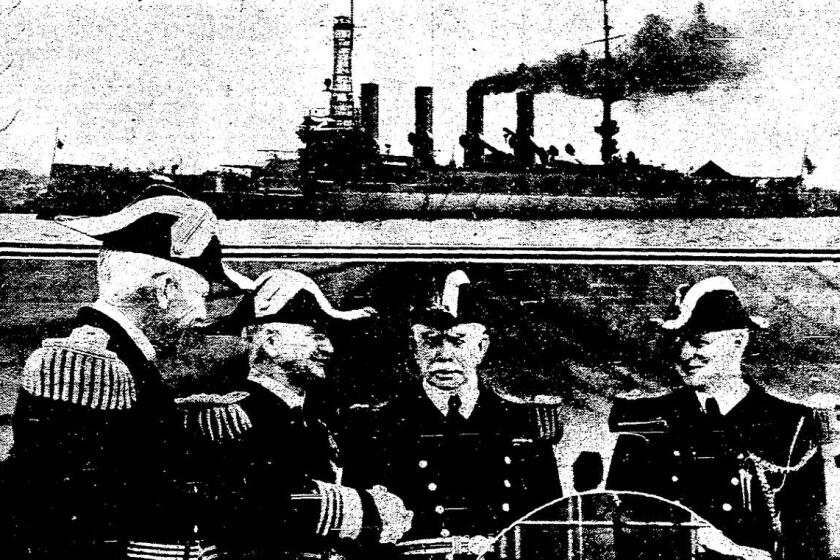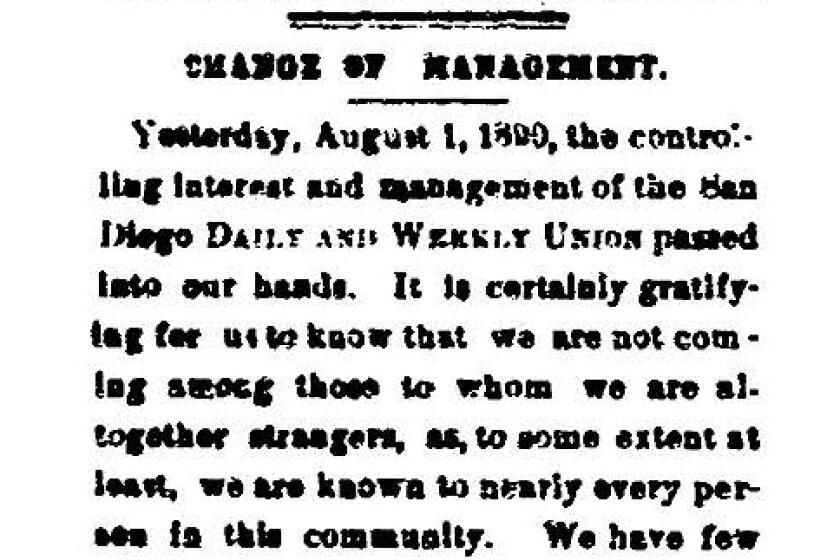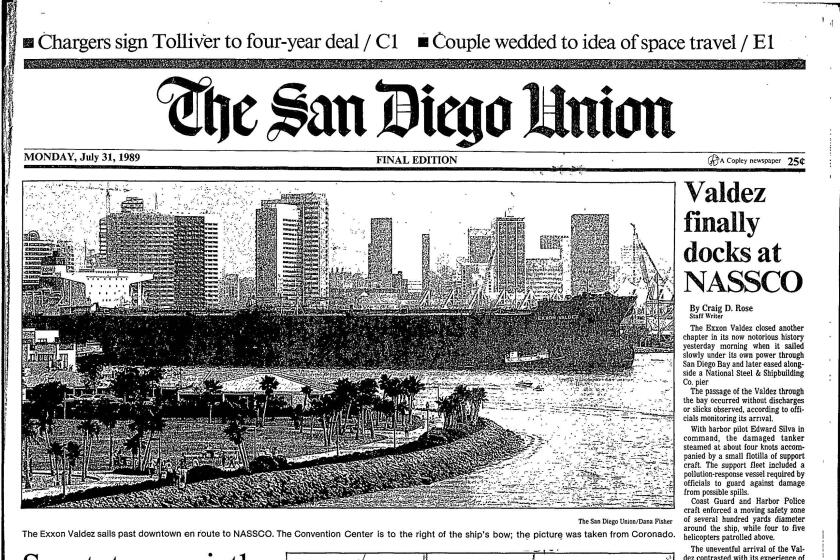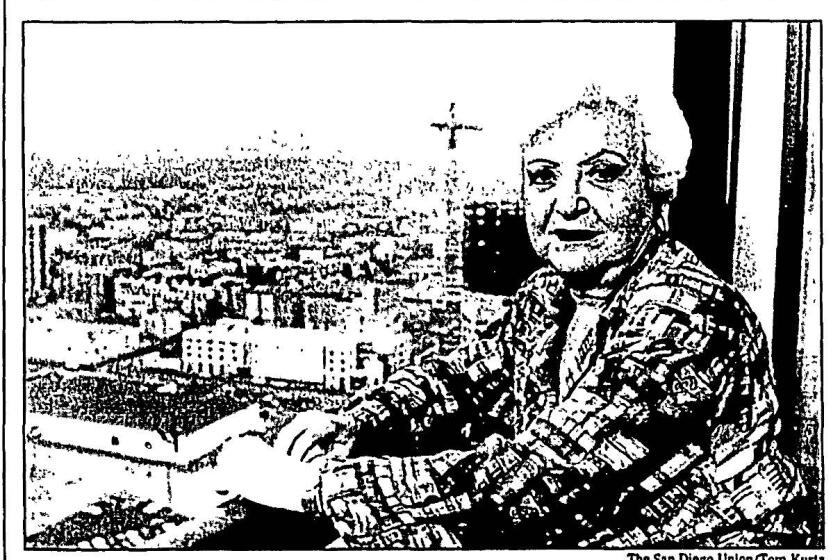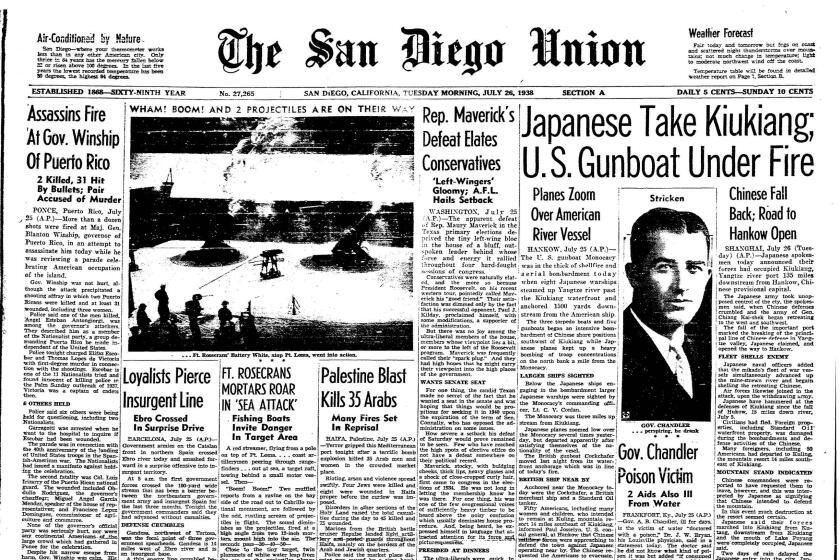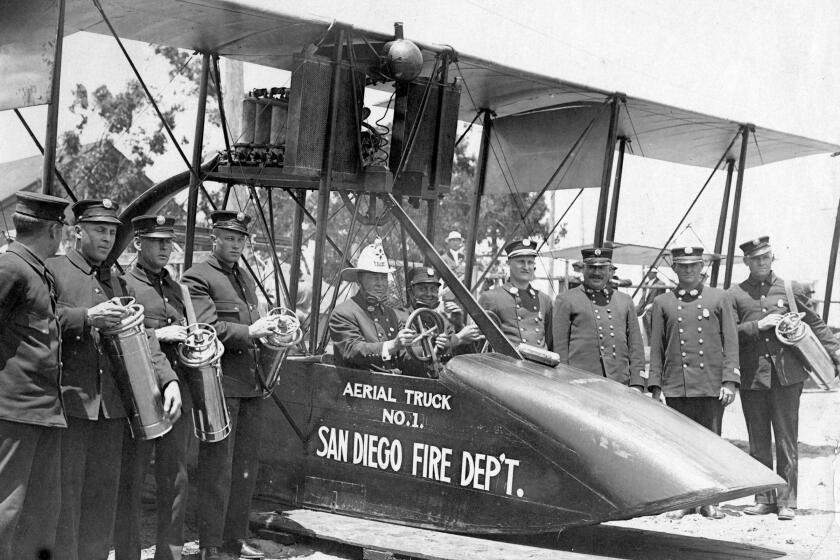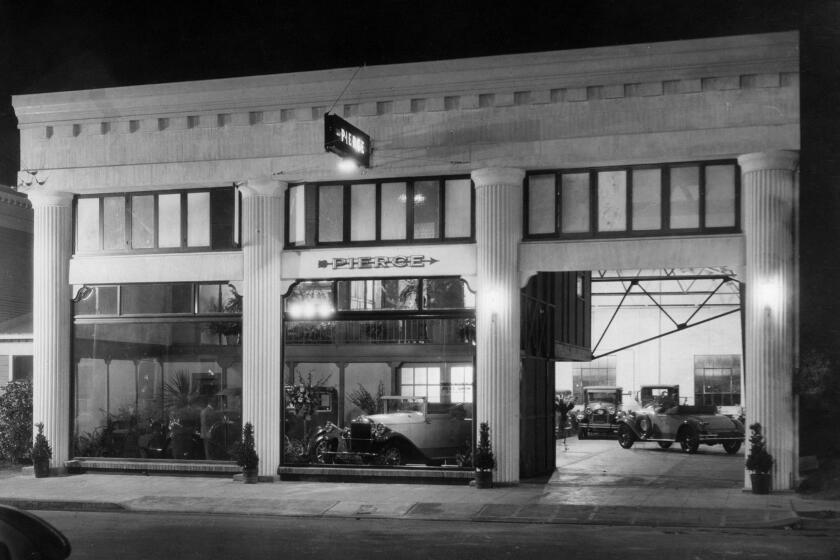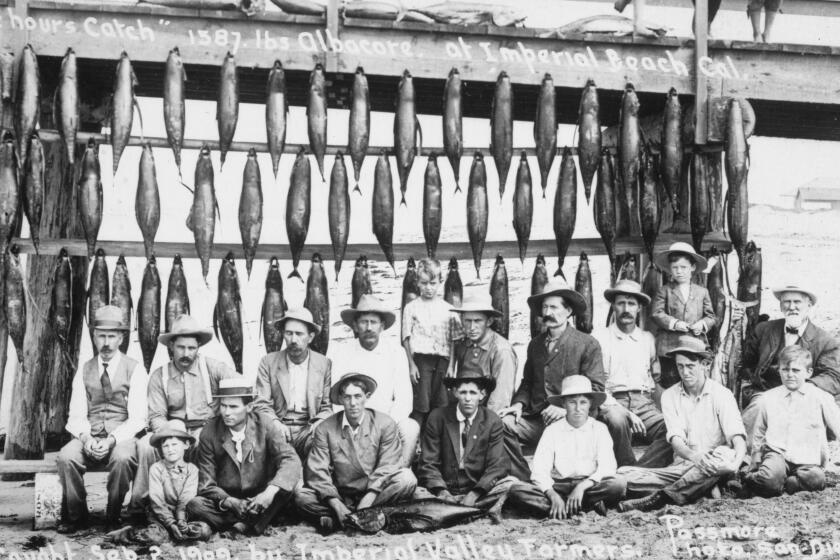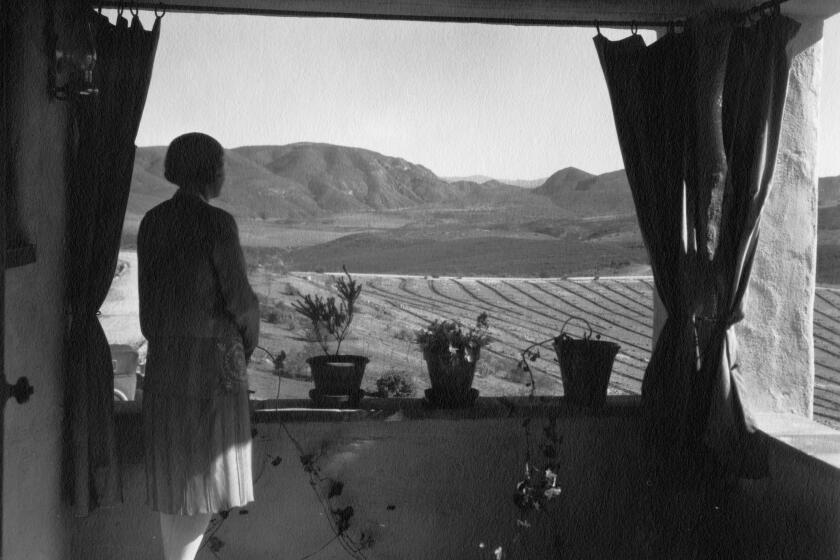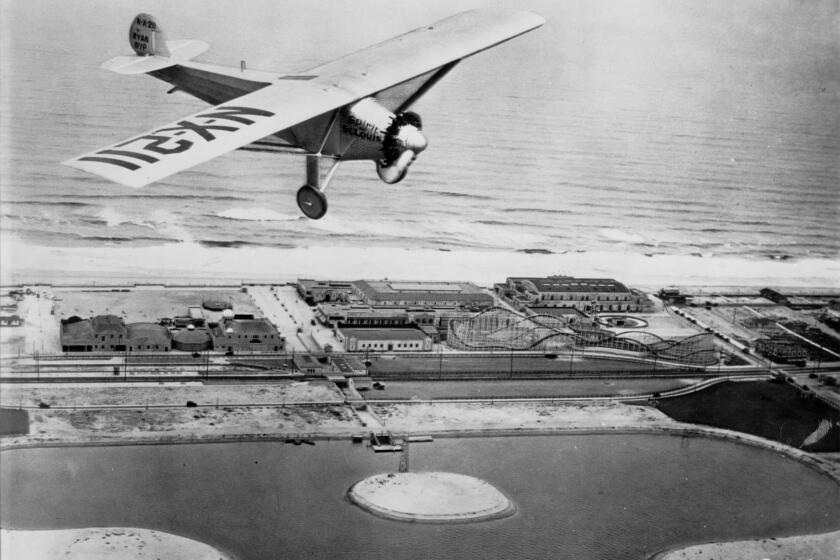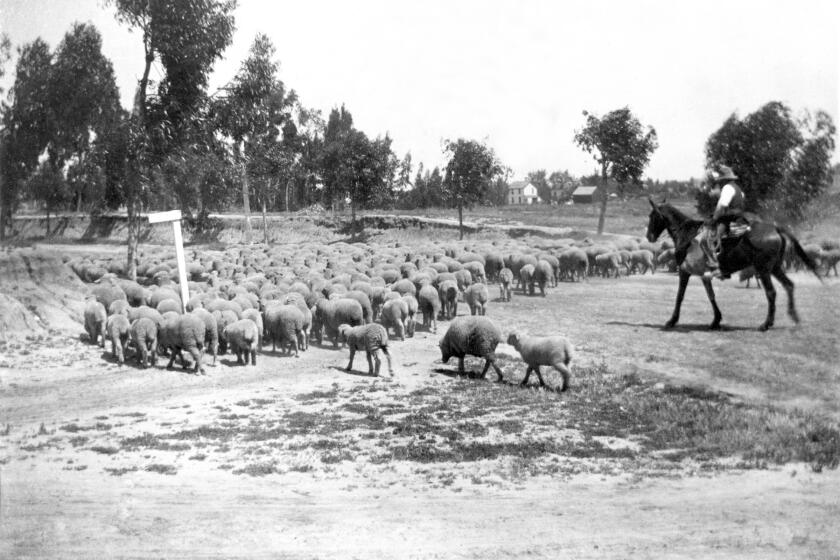From the Archives: 20-years later: ‘Mission Accomplished’ speech
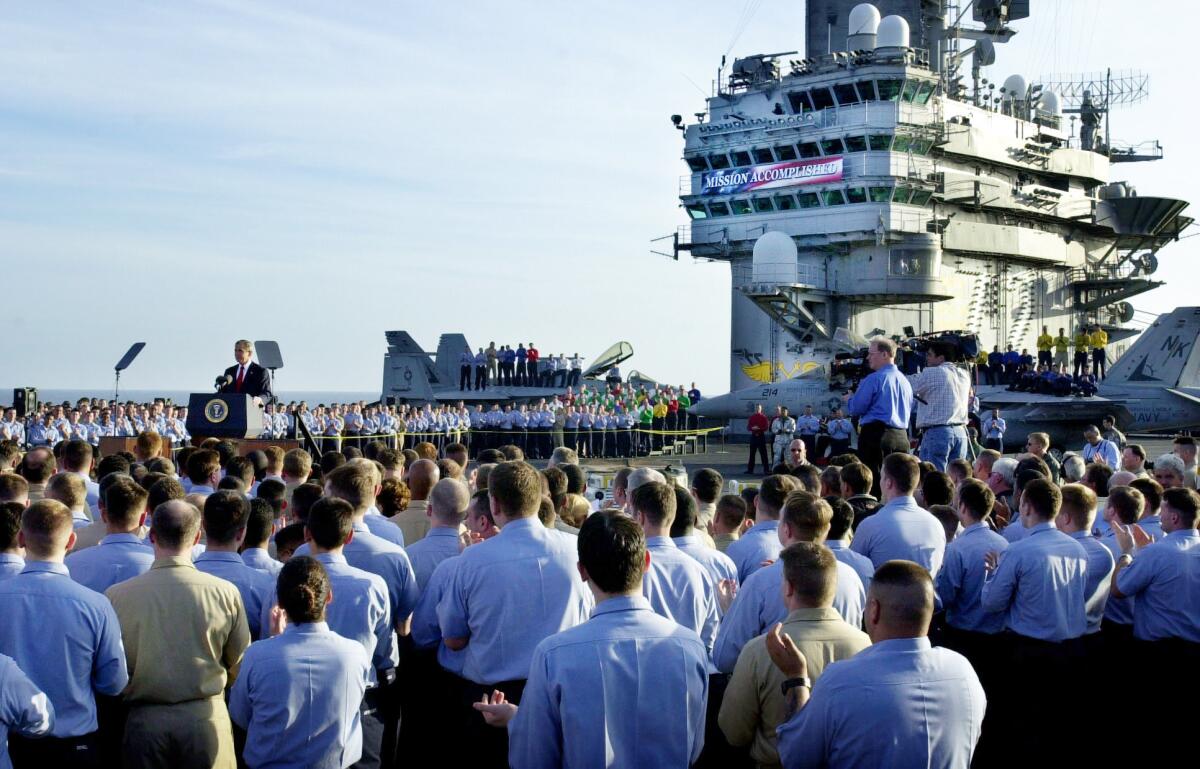
Twenty years ago, President George W. Bush declared the end of major combat in Iraq in front of a banner reading, “mission accomplished,” in a now-infamous speech on May 1, 2003, aboard the aircraft carrier Abraham Lincoln off the coast of San Diego.
But despite Bush declaring an end to major combat operations in Iraq, the military mission would drag on for nearly nine years.
From The San Diego Union-Tribune, Friday, May 2, 2003:
‘Turning of the tide’
Bush cites end of major fighting in Iraq, warns dangers remain
By George E. Condon Jr., Copley News Service
President Bush, framed by warplanes that did awesome damage to Saddam Hussein’s regime and surrounded by cheering sailors, yesterday declared triumph on the battlefields of Iraq and proclaimed the “turning of the tide” in the war against terrorism.
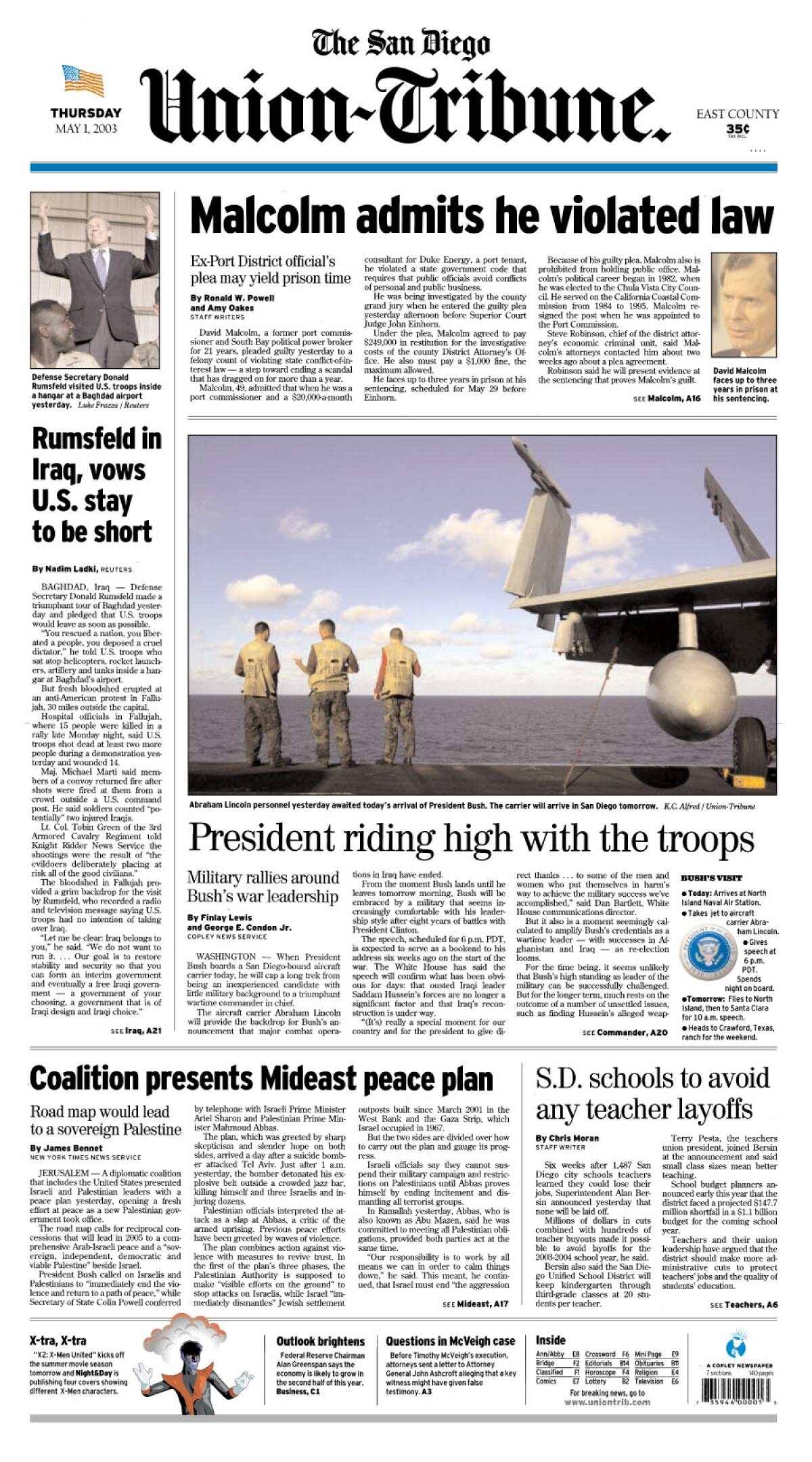
“Major combat operations in Iraq have ended. In the battle of Iraq, the United States and our allies have prevailed,” he announced in an address to the nation from the deck of the San Diego-bound aircraft carrier Abraham Lincoln.
But even after a day of being treated like a conquering general by enthusiastic sailors and airmen aboard the Abraham Lincoln, the president pointedly warned that danger remains in Iraq.
“We have difficult work to do in Iraq,” he said, noting that there are “parts of the country that remain dangerous.”
With U.S. troops still under fire on the streets of Baghdad and other Iraqi cities, the president cast Iraq as merely one battle in the fight against terrorism initiated by the attacks of Sept. 11, 2001.
“The war on terror is not over, yet it is not endless,” he said. “We do not know the day of final victory, but we have seen the turning of the tide.”
He called the defeat of Hussein “one victory in a war on terror that began on Sept. 11th, 2001.” He also said Hussein’s demise was a serious blow to the al-Qaeda terrorist organization blamed for the Sept. 11 attack, although the administration has never tied the Iraqi leader to that event.
“From Pakistan to the Philippines to the Horn of Africa, we are hunting down al-Qaeda killers. ... As of tonight, nearly one-half of al-Qaeda’s senior operatives have been captured or killed,” he said.
He added that, in defeating Hussein, “we have removed an ally of al-Qaeda and cut off a source of terrorist funding.”
Ultimate victory is inevitable, he suggested.
“No act of the terrorists will change our purpose or weaken our resolve, or alter their fate. Their cause is lost. Free nations will press on to victory,” the president said.
While celebrating triumphs in Afghanistan and Iraq, he warned the nation that future battles are likely. Al-Qaeda is “wounded, not destroyed,” he cautioned, adding that terrorists “continue to plot against free people” and proliferation of deadly weapons remains a threat.
And he said that nations supporting terrorism or pursuing weapons of mass destruction are “a grave danger to the civilized world and will be confronted.”
With Iraq still in disarray and Hussein still unaccounted for, the president outlined many remaining challenges there. He promised that U.S. forces will continue to hunt down leaders of Hussein’s regime to bring them to justice. And he made brief mention of the weapons of mass destruction he has long cited as one of the main causes for the war.
Amid growing international criticism of the failure of coalition troops to find any such weapons, the president suggested the hunt for them is just starting.
“We have begun the search for hidden chemical and biological weapons, and already know of hundreds of sites that will be investigated,” he said.
He also pledged an intensified U.S. effort to rebuild Iraq “where the dictator built palaces for himself instead of hospitals and schools for the people.”
Bush offered no timetable either for a transition from U.S. occupation to Iraqi self-rule or for the withdrawal of U.S. forces, suggesting only that neither will happen soon.
“The transition from dictatorship to democracy will take time,” he said. “But it is worth every effort. Our coalition will stay until our work is done. Then we will leave. And we will leave behind a free Iraq.”
For Bush, who had defiantly ignored the criticisms of allies overseas and protesters in the streets at home to launch the war, this was a day of vindication and memorable pictures almost certain to be seen again in his re-election campaign next year.
Far from the deck-top celebration, no one watched the scenes from the Lincoln with more interest than the nine Democrats who are fighting for the right to run against Bush next year -- all of whom would like to change the subject very quickly from war victories abroad to economic woes at home.
“The president’s going out to an aircraft carrier to give a speech far out at sea ... while countless numbers of Americans are frightened stiff about the economy at home,” Sen. John Kerry, D-Mass., said yesterday in Washington.
Presidents since John Tyler have spent time on U.S. naval ships. But none has ever made a statement quite the way Bush did when he donned full flight gear, slipped into the co-pilot’s seat of an S-3B Viking and, before a live-television audience, landed on the carrier deck.
After the plane’s tailhook grabbed the fourth cable stretched across the deck, it came to a screeching halt.
Bush was exultant when he bounded down from the cockpit, helmet tucked under his arm and a big smile on his face. He later told reporters that he had piloted the plane briefly. It was the first time he had taken the controls of a plane since his stint in the Texas Air National Guard in the early 1970s when he piloted F-102 “Delta Dagger” fighter jets.
Bush acknowledged that this jet was “much more sophisticated” than what he knew back in his flying days. But he said his time at the stick yesterday was “really exciting,” adding, “I miss flying.”
In many ways, his address yesterday was a dramatic “thank you” to the crew of the Lincoln -- who had endured the longest deployment in the history of nuclear carriers, one that took them 10 months and 100,000 miles -- and to all members of the U.S. military.
The president spoke from a makeshift stage about halfway down the runway, with crew members in front and two fighter jets parked strategically so they would be in the picture behind him on each side.
“Because of you, our nation is more secure. Because of you, the tyrant has fallen, and Iraq is free,” Bush said to loud and sustained applause.
“Operation Iraqi Freedom was carried out with a combination of precision, speed and boldness the enemy did not expect, and the world has not seen before,” he said. “You have shown the skill and might of the American armed forces.”
In the hours between his arrival and his address to the nation, the president toured the ship and observed flight operations. Following the address, he ate dinner with members of the crew before spending the night in the captain’s “in port” quarters.
Bush was the first president ever to fly by jet onto a carrier and the first since Bill Clinton in 1994 to spend the night on one.
Aware that family members and loved ones -- and even many of the 150 babies born while the carrier was away -- would be eagerly awaiting the ship, the president made sure that he would be gone before it docked in San Diego today. He will take a helicopter back this morning to North Island Naval Air Station, and from there will fly to the Silicon Valley, where he plans to give a speech on the economy and national security.
The carrier had to slow its rush toward San Diego, because it was closer to the California coast than anticipated when Bush arrived. The ship was only 30 miles away when the president’s plane arrived and it had to be slowed so land would not be seen in any of the televised pictures.
Crew members were clearly delighted to have a visit from their commander in chief regardless of any slowdown in their schedule. They warmly greeted him and interrupted his address 24 times for applause -- including the longest and heartiest round when he reminded them they were “homeward bound.”
“We actually got noticed for all we did,” said Petty Officer 3rd Class Eric Vannes, who listened from near the spot where Bush’s plane stopped after landing on the flight deck six hours earlier.
“I was very honored because it’s the commander in chief, so it is very important,” Vannes added.
Several sailors said the speech seemed to be the perfect ending for the ship’s wartime service.
“It’s just gratifying that the president came out,” said Lt. j.g. Michael Schearer, a Navy flight officer from Whidbey Island Naval Air Station, Wash. “It made the whole thing worthwhile. It shows he cares about the troops.”
Get Essential San Diego, weekday mornings
Get top headlines from the Union-Tribune in your inbox weekday mornings, including top news, local, sports, business, entertainment and opinion.
You may occasionally receive promotional content from the San Diego Union-Tribune.

